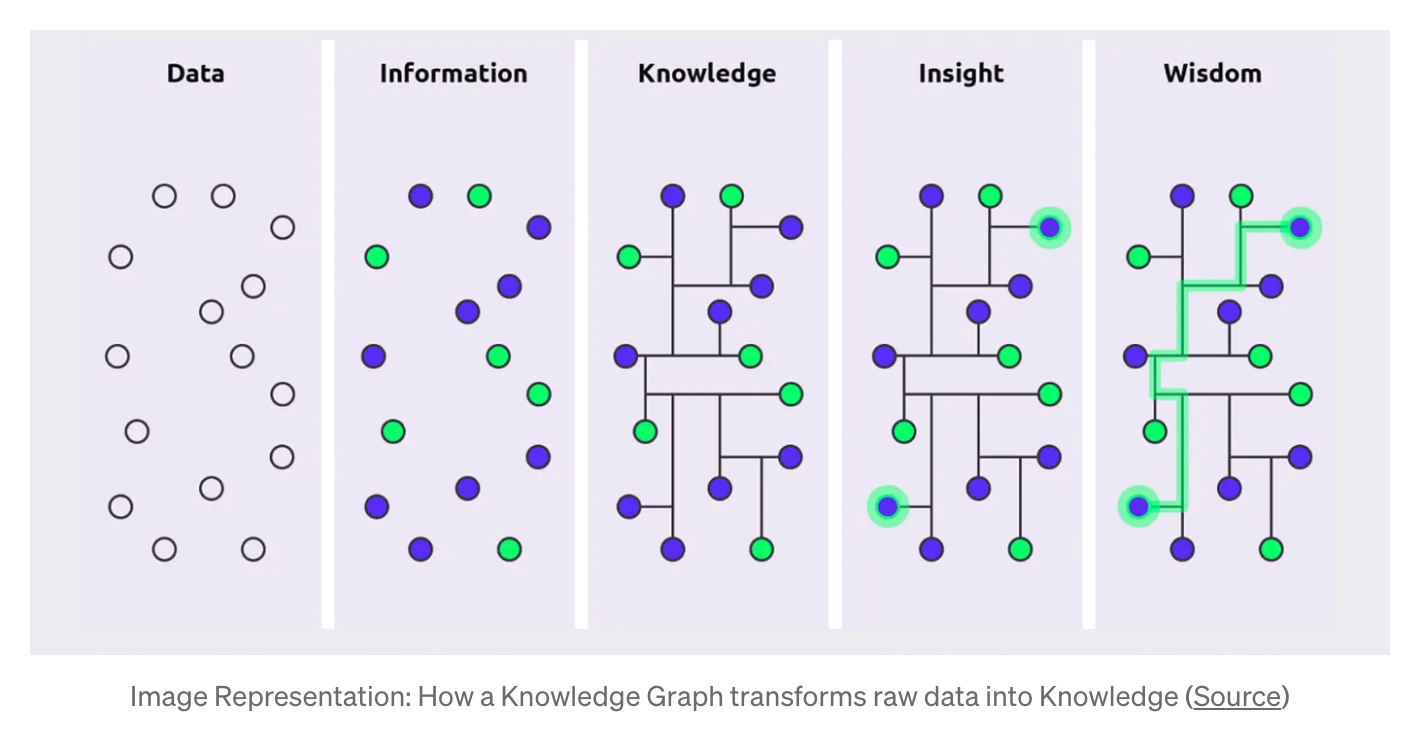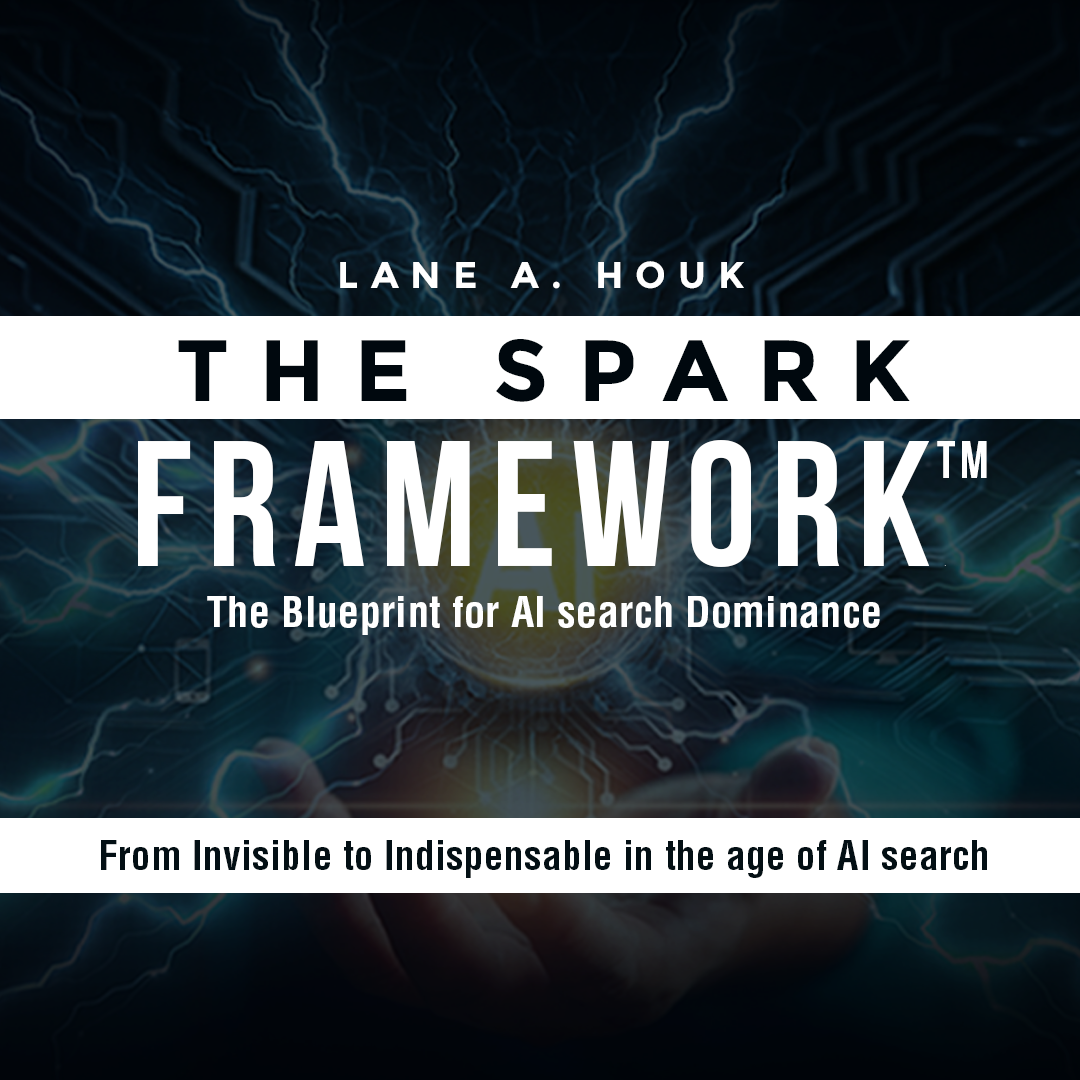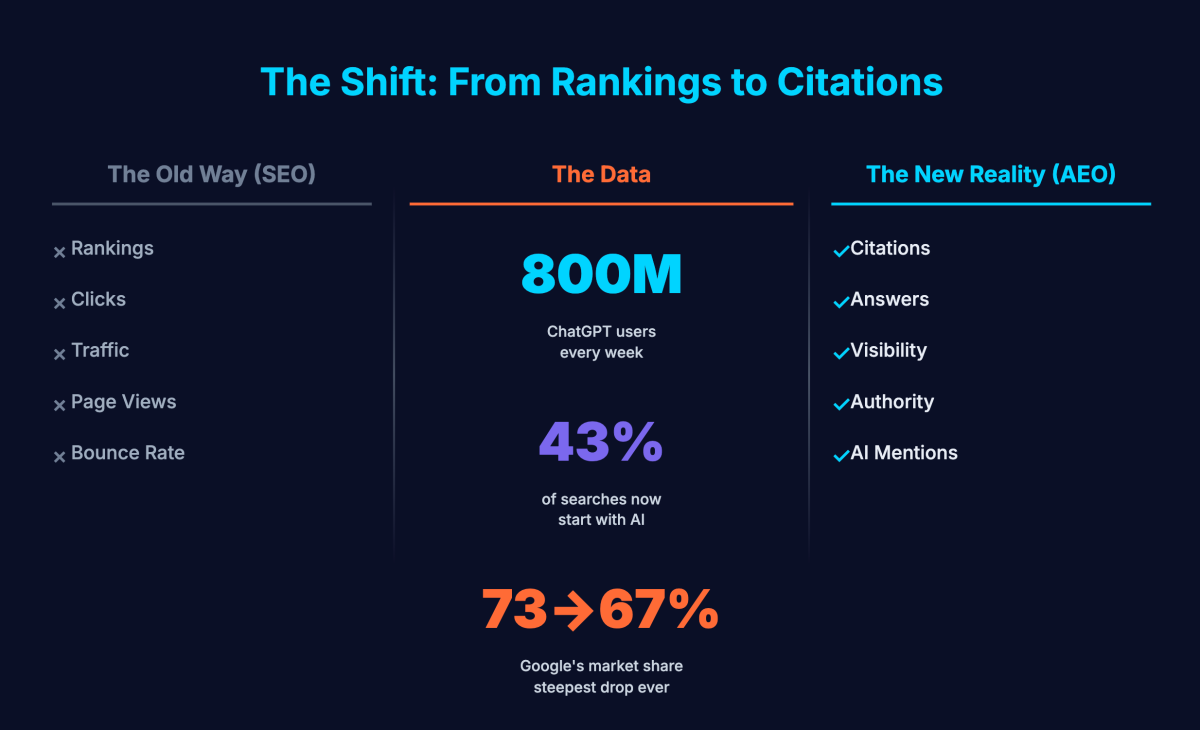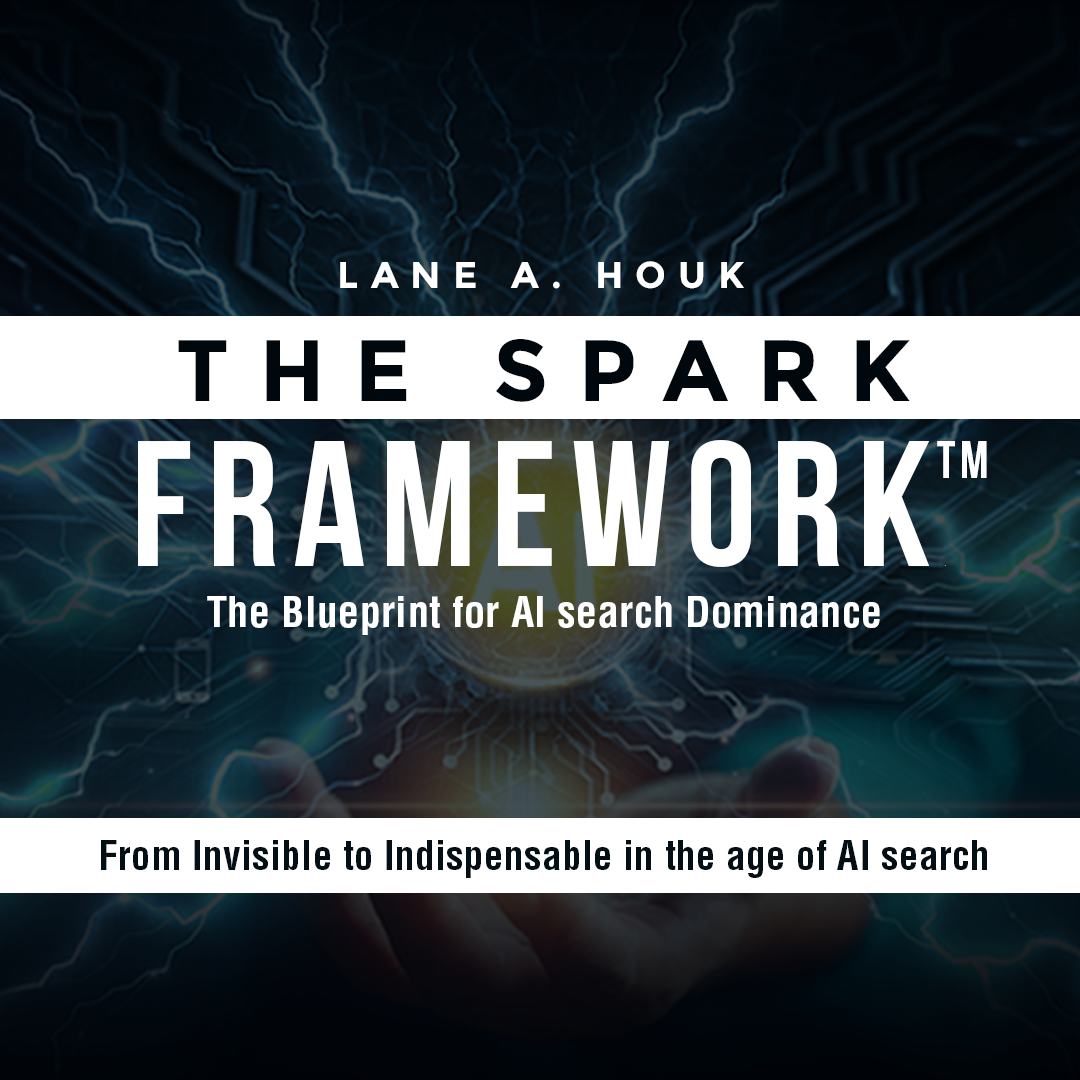The Invisibility Business Crisis: Why Your #1 Google Ranking Won't Save You from AI Search
While most businesses are still optimizing for Google rankings, a seismic shift is making traditional SEO obsolete. A new book by Lane Houk, The SPARK Framework™: The Complete Guide to Answer Engine Optimization, reveals why ranking #1 on Google no longer matters if you ignore what's already happening in traffic shifts to AI platforms. His book provides the first systematic, month-by-month roadmap for businesses to dominate the AI-powered search landscape.
The numbers are stark: 800 million people now use ChatGPT weekly. Google's search market share dropped from 73% to 66.9% in just six months—the steepest decline in company history. And 43% of all searches now start with AI assistants rather than traditional search engines. Just look at the statistics and traffic shift trends one more time.
The Problem: Traditional SEO Doesn't Work for AI
The book exposes five critical reasons why traditional SEO tactics fail in the age of AI:
SEO optimizes for crawlers. AEO optimizes for comprehension. Keyword density and meta descriptions mean nothing to AI systems looking for clear, definitive answers they can confidently cite.
SEO chases rankings. AEO builds authority. ChatGPT doesn't send clicks—it gives answers. If you're not the answer, you don't exist.
SEO targets keywords. AEO targets entities. AI systems think in entities and relationships, not keywords. If you're not established as an entity in Wikidata and knowledge graphs, you're invisible.
SEO builds backlinks. AEO builds knowledge graphs. Your 500 backlinks mean nothing if you're not in the structured knowledge bases AI systems query.
SEO writes for humans (and tricks bots). AEO writes for machine comprehension. AI requires content that's simultaneously engaging for humans and structured for instant extraction.
"Most businesses are playing the wrong game," Lane explains. "They're celebrating their Google rankings while 800 million people weekly are getting answers from ChatGPT—and never hearing their name. It's like optimizing your Yellow Pages ad in 2010. The game has changed."

The Solution: A Systematic 12-Month Framework
Unlike vague "AI SEO tips," The SPARK Framework™ provides a complete, month-by-month implementation guide based on five core pillars:
S – Semantic Optimization: Establish your brand as a recognized entity with clear relationships in knowledge graphs, not just keyword rankings.
P – Platform Authority: Build cross-platform entity recognition across Wikipedia, Wikidata, industry databases, and the sources AI systems trust.
A – Answer Readiness: Structure every page as a ready-made answer AI can extract and cite without additional processing.
R – Relevance Signals: Create consistent definitions across multiple independent sources to build AI confidence.
K – Knowledge Integration: Ensure your content becomes part of the datasets AI systems are trained on.
The book includes:
12 monthly implementation plans with specific tasks and time estimates
Action checklists for Wikidata entries, Wikipedia citations, schema markup, and more
16 advanced tactics never required in traditional SEO
Real-world case studies showing 150-300% traffic increases and 50-100+ AI citations within 6 months
Templates and frameworks for immediate implementation
Actions Traditional SEO Never Required
The book reveals tactics businesses have never had to consider:
Creating Wikidata entries with structured facts and relationships
Building "Wikipedia clusters" with 5-10 citations across relevant articles
Implementing the "ELIAI" (Explain Like I'm AI) content format
Optimizing for Bing (ChatGPT's gatekeeper for web search)
Stacking multiple schema types on single pages
Publishing open datasets branded with your company name
Running "temporal authority sprints" to trigger AI recognition
Seeding Q&A ecosystems that become training data
"These aren't 'nice to have' tactics," Lane Houk emphasizes. "These are the fundamentals of being visible to AI. Businesses that don't implement these strategies won't just lose rankings—they'll cease to exist in the eyes of 800 million weekly ChatGPT users."
The 12-18 Month Competitive Window
Perhaps most urgent is the book's warning about timing.
"The businesses implementing AEO strategies today are building 12-18 month competitive leads that will be nearly impossible to overcome," Lane Houk warns. "Once you're established as the authoritative source AI systems cite, competitors can't simply 'outrank' you with better SEO. There's no 'page 2' in ChatGPT. You're either cited or invisible."
The book documents how early movers are already seeing results:
150-300% traffic increases from AI-driven search
50-100+ AI citations within 6 months of implementation
300-500% ROI on AEO investments
First-mover advantage in emerging AI search platforms
"In 12-24 months, every business will understand they need AEO," Lane Houk predicts. "But by then, the early movers will have built such strong entity recognition that catching up will be nearly impossible. This is the Yellow Pages moment, the mobile moment, the social media moment—except compressed into a much shorter timeframe."
Who Needs This Book
The SPARK Framework™ is essential reading for:
Business owners who need to future-proof their online visibility
Marketing directors responsible for driving qualified traffic
SEO professionals who recognize that traditional tactics are failing
Agency owners looking to add high-value AEO services
Content creators who want their work cited by AI systems
Entrepreneurs building businesses in the AI era
"If you depend on online visibility for revenue, this book isn't optional," Lane Houk states. "The shift from Google to AI search is happening faster than any previous technology transition. Businesses that wait will find themselves invisible—and by then, it will be too late."
About the Author, Lane Houk
Lane Houk is the founder of Quantum Agency, a white label digital agency. He builds AI-powered systems that streamline SEO, digital PR, lead follow-up, and local visibility—combining proven search strategy with automation to drive measurable growth. Lane is the creator an author of the SPARK Framework™ (Blueprint for AI Search Dominance) and the founder of Franchise AiQ™, which helps multi-location franchise brands leverage advanced conversational AI in their marketing, sales and operations.




